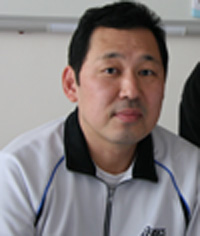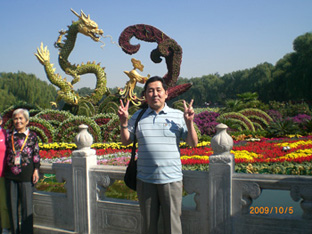Ariyuki Iwaura - Dysthymia disorder(Japan) Posted on October 26, 2009
Name: Ariyuki Iwaura
Gender: Male 
Age: 47
Country: Japan
Diagnosis: Dysthymia disorder
Admission Date: 2009-09-18
Date of Discharge: 2009-10-23
Number of Days Admitted: 35
Medical History:
Ariyuki Iwaura is an entrepreneur in Japan and has been engaged in the real estate market in Tokyo and is very successful. But when I saw Ariyuki for the first time, I thought that he was actually lonely and depressed.
The first day he arrived at our hospital, he sat alone in the hospital bed and kept to himself. Besides his courtesy smile, his eyes revealed a slight sadness and loneliness. He said he was a lively and athletic man before. He went on to say that he was healthy and loved to play sports and read books. He is an educated person. Twenty years ago, he started to suffer from depression, and there were times when he considered suicide. He had lost interest in playing sports and stopped smiling. When he first arrived at the hospital, he brought many daily necessities with him from Japan and was unwilling to go out for shopping.
During the first few days, Ariyuki stayed in the hospital ward alone, listened to classical music and slept often. He was not interested in participating in the rehabilitation training or any other activities.
Treatment:
Ariyuki received the relevant examinations and was diagnosed with Dysthymia disorder. He was given treatment in order to expand the blood vessels, nourish the neurons, activate the neural stem cells, and this treatment was combined with sports rehabilitation.
After the Treatment:
Ariyuki filled out a despondency form which recorded his daily moods. After the second stem cells implantation, his mood gradually improved. His mood went from sadness, to tranquility, then finally to happiness. Although the changes were calculated to be 0.5 of a point, on the rating scale, judging by his increased smiles, we could see he was clearly happier.
When he left the hospital, his condition had measurably improved. Right before he left, he would take frequent walks in the hospital's garden area and he would also go jogging. His overall exercise routine greatly increased. He was glad to engage other people in conversation and would often make jokes. He had a chance to go to the Great Wall and Beihai Park.
Before leaving, his sad expressions had disappeared; replaced by bright smiles. He said he would come back to Beijing again for sightseeing. He will also continue his family's business. The doctors think his condition will continue to improve steadily during a time period of three to six months after leaving the hospital.


